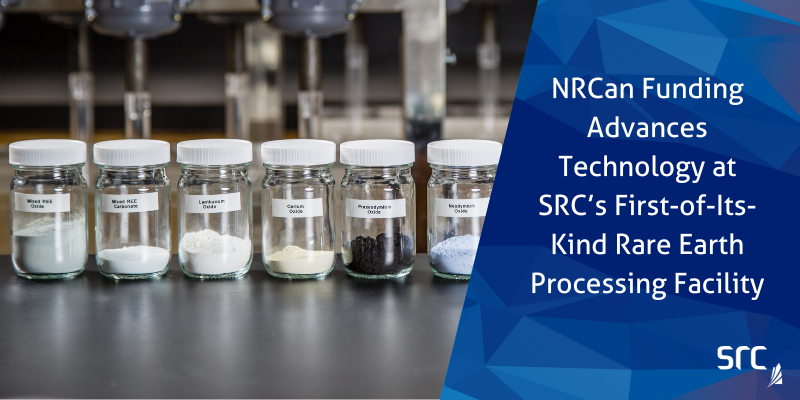This news release originally appeared on the Government of Saskatchewan website.
As the Saskatchewan Research Council (SRC) approaches its target of commissioning North America's first, vertically integrated Rare Earth Processing Facility by the end of 2024, a $4,990,000 million investment from Natural Resources Canada (NRCan) will help secure Canada's supply of rare earth elements (REEs) essential for the development of global modern technology.
Since 2020, SRC has been constructing and developing new technologies for a first-of-its-kind fully integrated, commercial demonstration Rare Earth Processing Facility with hydrometallurgy, solvent extraction and metal smelting stages. This $71 million Government of Saskatchewan funded facility will begin to establish an REE hub in Saskatchewan, forming an industry model for future REE initiatives and supply chain development.
"Additional investment into the REE industry is imperative as Saskatchewan helps develop a cutting-edge and secure REE supply chain in North America to decrease reliance on supply from China," Minister Responsible for SRC Jeremy Harrison said. "Demand for these resources is increasing and Saskatchewan aims to be a world leader in supplying the rare earth market."
Currently, SRC's facility has the capability to separate Neodymium and Praseodymium, before these elements are then processed into rare earth metal. This funding, through NRCan's Critical Minerals Research, Development and Demonstration program, will help SRC's facility develop advanced technologies to separate Dysprosium and Terbium, as well. These rare earths will be separated using SRC's proprietary, in-house developed solvent extraction technology - making Saskatchewan one of only a handful of jurisdictions with this capability worldwide.
"This funding allows SRC to complete an important step in the rare earth supply chain, adding the ability to demonstrate separation for Dysprosium and Terbium at our Rare Earth Processing Facility," SRC President and CEO Mike Crabtree said. "Separating these rare earths is instrumental in the manufacturing of high-grade permanent magnets which are used in global modern technology."
SRC is Canada's second largest research and technology organization with 1,600 clients in 22 countries around the world. With nearly 350 employees and $232 million in annual revenue, SRC helps clients solve technology problems, make improvements, increase productivity and develop new markets.

